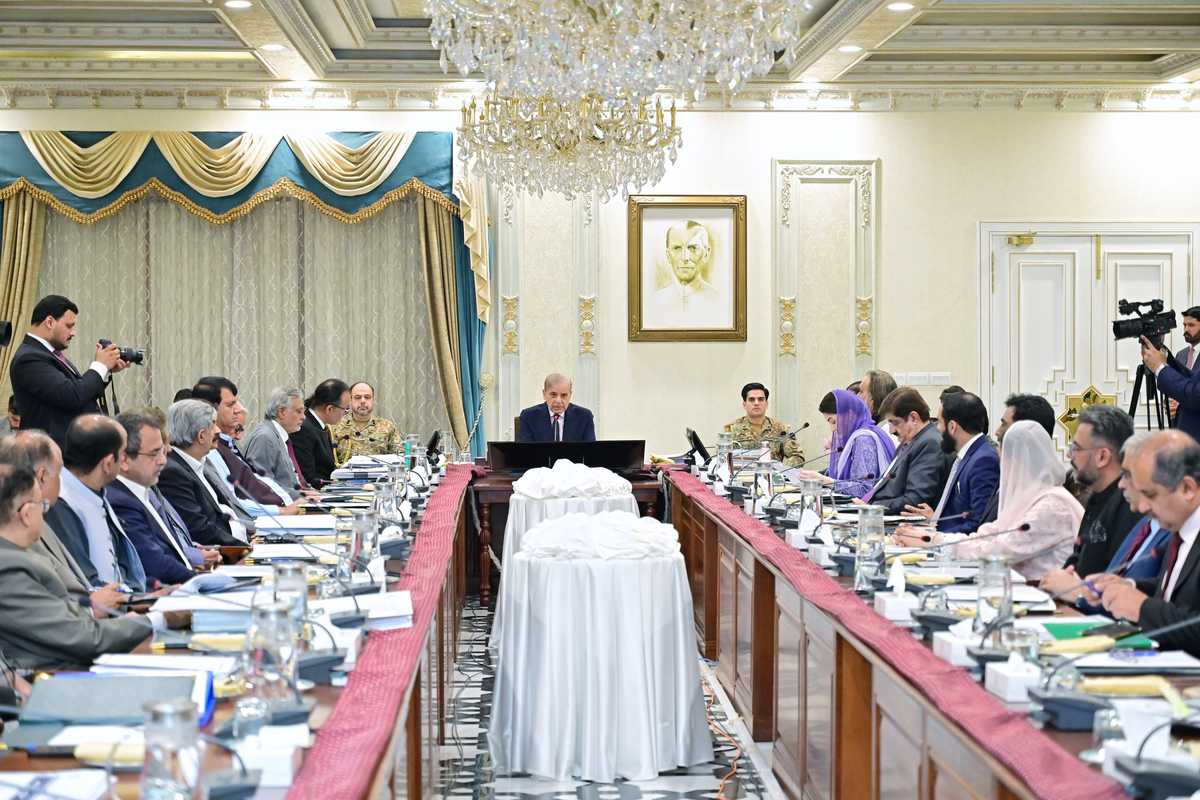Pakistan’s canal plan paused, but project lives on after CCI nod to federal policy
Sindh celebrates pause in project, but experts warn it’s only a temporary win

Javed Hussain
Correspondent
I have almost 20 years of experience in print, radio, and TV media. I started my career with "Daily Jang" after which I got the opportunity to work in FM 103, Radio Pakistan, News One, Ab Tak News, Dawn News TV, Dunya News, 92 News and regional channels Rohi TV, Apna Channel and Sach TV where I worked and gained experience in different areas of all three mediums. My journey from reporting to news anchor in these organisations was excellent. Now, I am working as a correspondent with Nukta in Islamabad, where I get the opportunity of in-depth journalism and storytelling while I am now covering parliamentary affairs, politics, and technology.

Council of Common Interests meeting chaired by Prime Minister Shehbaz Sharif.
Pakistan’s Council of Common Interests (CCI) has deferred the controversial Cholistan Canal Project, originally designed to draw water from the Indus River, while endorsing the federal government’s broader water policy. The decision came during a meeting chaired by Prime Minister Shehbaz Sharif on Monday, following political pressure from Sindh-based parties and rising concerns over water rights.
According to the CCI agenda, the Sindh government had submitted a summary to discuss the diversion of canals from the Indus River. However, the council's final declaration did not mention the summary and instead backed the federal stance.
The ambiguity surrounding the declaration has raised questions. “Has the Sindh government’s summary been approved unanimously, or did it concede to the federal policy?” critics ask.
While the Pakistan Peoples Party (PPP) and allied parties celebrated the move as a “win-win”, the declaration clarified that the Cholistan project has not been scrapped. Rather, the Planning Commission and the Indus River System Authority (IRSA) have been tasked with redesigning the project in consultation with the provinces. A revised plan will be submitted for future approval.
Sources told Nukta that phase one of the redesign is already underway. The new plan includes using alternative water sources for agriculture in the Cholistan region and shifting farmers to solar-powered irrigation systems. A committee has been formed to recommend technical improvements for the agricultural sector. Until these steps are finalized, canal construction remains on hold.
Dr. Abdul Rauf, a water resources expert, said, “The CCI’s press release shows that canal diversion from Sindh has been temporarily halted. The Council is meant to build consensus among provinces.”
Rauf noted that water distribution is governed by the 1991 accord, Sindh receives 42% of water, Punjab 48%, KP 7%, and Balochistan 3%. IRSA, the national body managing water allocation, had approved the Cholistan project but has now withdrawn its initial notification.
He added, “This project is paused, not canceled. Unlike the fate of the Kalabagh Dam, this project might still move forward, provided the technical issues and provincial concerns are resolved.”
However, senior political analyst Iftikhar Hussain Shirazi believes the outcome was pre-determined.
“The PPP is under pressure from Sindh’s nationalist groups. That’s why the May 2 meeting was hastily convened,” Shirazi told Nukta.
He observed that although the project hasn’t been terminated, the declaration lacks any reference to provincial consensus. “It speaks of ‘mutual understanding,’ which implies that Sindh will be presented with technical justifications to address its objections.”
According to Shirazi, Sindh Chief Minister Syed Murad Ali Shah has shown willingness to move forward under a framework of cooperation. “The project will now start with a reduced demand of 1,200 cusecs of water, down from the initial 4,000 cusecs. This will likely avoid any immediate resistance from Sindh.”
Shirazi concluded that the federal government, Punjab, and the ruling PML-N have effectively preserved the project. “It hasn’t been scrapped, and that itself is a win for the Center.”
While Sindh calls the deferral a political victory, experts warn the real test will be whether genuine consensus can be built among provinces, or whether the project will follow the same divisive path as Kalabagh Dam.







Comments
See what people are discussing